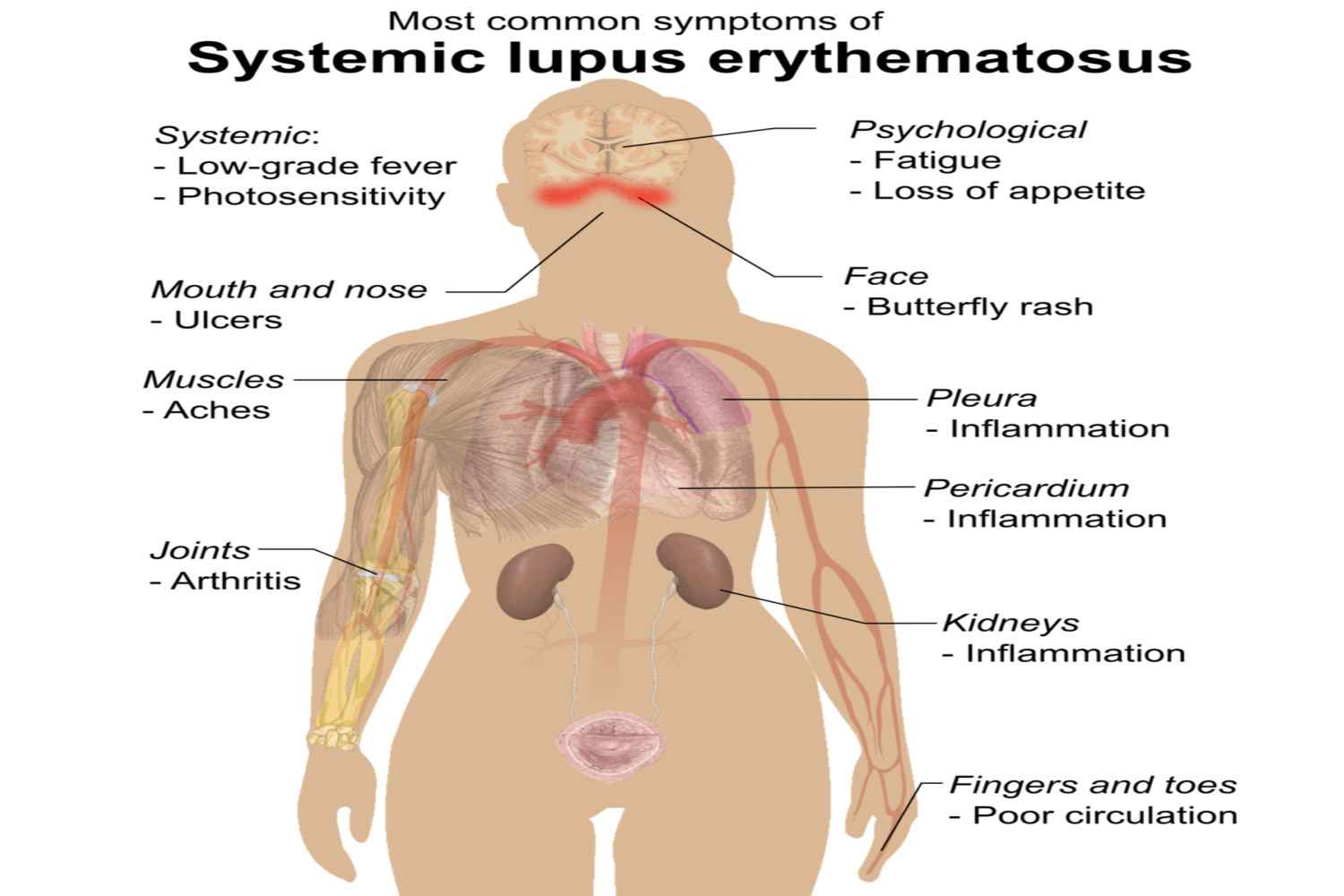 I was diagnosed with lupus recently. Does it affect my fertility? Well, this is a common question that people ask the most if they have lupus. The shortest answer is yes; lupus can affect fertility in men and women. Getting pregnant with lupus can be a challenging and scary prospect. So is pregnancy possible with lupus?
I was diagnosed with lupus recently. Does it affect my fertility? Well, this is a common question that people ask the most if they have lupus. The shortest answer is yes; lupus can affect fertility in men and women. Getting pregnant with lupus can be a challenging and scary prospect. So is pregnancy possible with lupus?
According to a recent report by the Lupus Foundation of America, it is estimated that nearly 5 million people across the globe have some form of lupus. The good news, though, is that with the right medication and treatment, a couple can have a safe pregnancy. To get a deep insight into what lupus is and how it affects fertility, read below.
In This Article
- Lupus Unveiled: Understanding the Disease
- How Does a Person Get Lupus?
- Male Fertility and Lupus
- Lupus and Female Fertility
- Preparing For Pregnancy With Lupus
- Lupus Medications And Fertility
- FAQ’s
Lupus Unveiled: Understanding the Disease

Lupus refers to a progressive disease that affects numerous systems of the body and weakens the immune system. Predominantly, it affects young men and women who are at the reproductive stage. Lupus has the potential to damage joints, lungs, heart, skin, blood, kidneys, and even brain cells. However, it has an adverse impact on the reproductive system, leading to infertility. In general, infertility and lupus are connected because of numerous causes, such as testicular damage in males and primary ovarian failure in women. Some of the common symptoms associated with lupus disease include:
- Weight loss
- Fever
- Skin patches
- Muscle fatigue
- Breathing difficulties
- Fingers and toes turn white or blue when exposed to cold or during stressful periods.
- Chest pain
- Dry eyes
- Headaches and memory loss
At an early stage, it is difficult to diagnose lupus because the signs and symptoms of the disease may mimic other common infectious diseases. However, if you are constantly feeling low libido and facing weight loss, you should consult with doctors to understand the root cause and get proper treatment.
How Does a Person Get Lupus?

Generally, lupus refers to the deposition of autoantibodies that leads to organ damage. Some of the common reasons a person acquires lupus are as follows:
1. Hormonal Issues
The disturbance in the secretion of hormones such as testosterone, estrogens, and testosterone can enhance the immune system’s responsiveness, leading to lupus.
2. Genetics
In some cases, the genetic predisposition is seen in the patient. These kinds of patients possess a great risk of lupus.
3. Immunity Abnormalities
The inappropriate action from the immune responsiveness can also trigger lupus in women and men.
4. Drug-Induced
The person on prolonged medication may develop the signs and symptoms of lupus and may end up with drug-induced lupus.
5. Environmental Factors
Viruses such as EBV and high exposure to ultraviolet light can also increase the risk of lupus.
Male Fertility and Lupus
Lupus has the potential to affect the male reproductive system. Men with lupus develop anti-sperm antibodies, which are likely to contribute to male infertility. Some studies show that lupus can result in a reduction in the testicle’s volume and lead to abnormalities in the sperm. Lupus also affects seminiferous tubules, which the sperms produce.
Follicle-stimulating hormone (FSH) and luteinizing hormone (LH) may be present in higher amounts in some lupus patients. These hormones tell the testicles to make testosterone. These abnormal levels might be the result of lupus-induced pituitary gland damage. Infertility and high FSH and LH levels are related.4
Men might experience issues with lupus nephritis as well. It is linked to decreased erectile dysfunction and sperm production. Infertility in males is associated with the same hormonal abnormalities caused by hemodialysis as it is in women.
Lupus and Female Fertility

Lupus is a common cause of infertility in women because it damages primary ovarian follicles, which is often known as primary ovarian insufficiency. In this condition, ovaries stop releasing eggs, and the menstrual cycle stops before the age of 40 years. Primary ovarian failure can lead to infertility in women, making it challenging for women to conceive naturally.
Lupus leads to autoimmune activity, which is the prime reason for POF in women. With this condition, irregular menstrual cycles are also typical, including periods that are unusually lengthy and heavy or that last for many months between visits to the toilet. Additionally, no hormonal variations were discovered that may account for the anomalies, pointing to an immunological explanation.
Some particular causes might be:
1. Anti-Corpus Luteum Antibodies
Once the egg is released, the ruptured follicle transforms into corpus luteum. It secretes the hormone progesterone that causes thickening of the uterus wall, making it suitable for the implantation of a fertilized egg. When a woman has lupus, the immune system destroys the corpus luteum, resulting in infertility.
2. Anti-Oocyte Antibodies
The oocytes develop into the eggs. But when you get lupus, the immune system starts producing antibodies against the oocyte and destroys the cells, leading to infertility.
Preparing For Pregnancy With Lupus

The first step towards preparing for pregnancy with lupus is managing the signs and symptoms of the disease. In addition to this, consider all the things necessary for a healthy and safe pregnancy.
1. Get Lupus Under Control
To begin with, foremost, be sure that your symptoms are manageable and your lupus is under control. The kidneys are put under more strain during pregnancy. Active renal illness can interfere with pregnancy and potentially result in miscarriage. Therefore, wait to become pregnant, if at all feasible, until your lupus has been under control for at least six months. This is especially true for renal dysfunction brought on by lupus.
The greatest strategy to safeguard your capacity to have children is to manage your condition because it has been shown that higher disease activity is associated with greater issues with infertility. Take your doctor’s advice and ensure that your reproductive system is fit to support pregnancy.
2. Consider Medication From Doctors
Before you proceed to get pregnant with lupus, your doctor may need to discontinue or change several drugs. The medications methotrexate, leflunomide, mycophenolate mofetil, cyclophosphamide, and warfarin should not be used once you get pregnant. Some medications must be stopped months in advance of trying for a baby. Continuous monitoring with healthcare experts helps you to achieve a healthy pregnancy.
Lupus Medications And Fertility

The most common drug that is used for the treatment of lupus disease is immunosuppressant Cytoxan, known as cyclophosphamide. This medicinal drug is highly responsive to dealing with infertility in men and women. Some other drugs that doctors generally prescribe to treat lupus are:
| Drugs | Treatment |
| Corticosteroids | Tablets, injections, and creams can help to deal with rashes and kidney issues. |
| Nonsteroidal anti-inflammatory drugs (NSAIDs) |
Nonsteroidal anti-inflammatory drugs (NSAIDs) It serves as a painkiller, treats symptoms of lupus, and helps to fight inflammation. |
| Monoclonal Antibody | It helps to treat lupus by reducing the antibodies |
| Antimalarial drugs | It helps treat muscle fatigue and joint problems |
| Immunosuppressive agents/chemotherapy | It acts as a suppressor of antibody reactions. |
In a nutshell, when you get lupus, it is essential to diagnose earlier and get treatment to manage symptoms. The journey of pregnancy with lupus is difficult. But with the right guidance, medication, and consultations with doctors, women can experience a healthy and safe pregnancy. In the case of men with lupus, doctors may suggest medicinal treatment to reduce the symptoms and risk of losing sperm consistency.
FAQ’s
1. Can Individuals With Lupus Have a Healthy Pregnancy?
Yes, women with lupus have a healthy pregnancy if they get the right treatment and keep a check on the symptoms associated with lupus. Additionally, timely consultation with doctors may help in managing hypersensitivity, preterm delivery, and miscarriage risk.
2. Are There Lupus Medications That Are Safer During Pregnancy?
Hydroxychloroquine is the most common medication that is considered safe during pregnancy. It helps reduce the risk of lupus flares. However, try to avoid taking medication without consultation with doctors.

